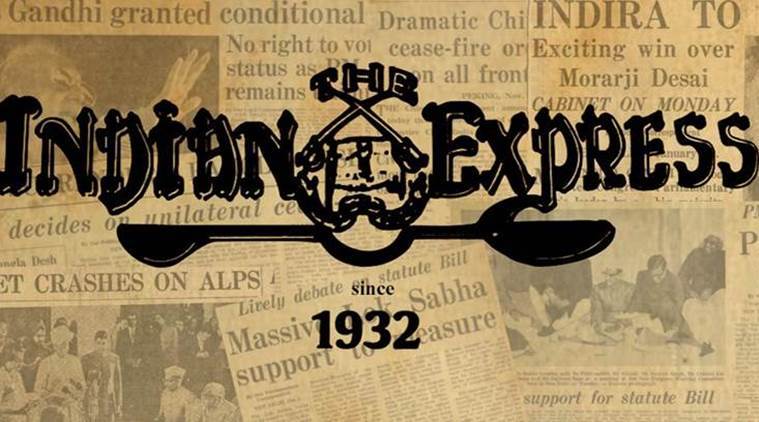- India
- International
The long road to equality
SC’s Section 377 verdict brings a belated but soaring moment. It’s a victory for individual and minority rights, underlines primacy of Constitution as a transformative document
 In the case of Section 377, judiciary has been supported enthusiastically by civil society, more reluctantly by the political class, to deliver a much belated but historic reform.
In the case of Section 377, judiciary has been supported enthusiastically by civil society, more reluctantly by the political class, to deliver a much belated but historic reform.
Section 377 IPC is irrational, indefensible and arbitrary,” the Supreme Court ruled on Thursday while striking down a law that had oppressed India’s LGBT community for more than 150 years. What consenting adults do in their bedrooms is no longer the business of the state. “The sexual orientation of each individual in the society must be protected on an even platform, for the right to privacy and the protection of sexual orientation lie at the core of the fundamental rights guaranteed by Articles 14, 15 and 21 of the Constitution,” the five-judge bench ruled.
That, in itself, makes the verdict historic. But the judgment must also be celebrated for tying the issue of sexual freedom with questions of minority rights, the protection of which is essential in any system that calls itself a constitutional democracy. “Constitutional rights cannot be held hostage to majoritarian consensus and popular morality,” said the apex court.
While striking down Section 377, the five-judge bench delineated the law’s discriminatory character. “Section 377 IPC assumes the characteristic of unreasonableness, for it becomes a weapon in the hands of the majority to seclude, exploit and harass the LGBT community. It shrouds the lives of the LGBT community in criminality and constant fear mars their joy of life. They constantly face social prejudice, disdain and are subjected to the shame of being their very natural selves.”
The judgment then tries to locate homosexuality “as a matter of identity”. “Attitudes and mentality have to change to accept the distinct identity of individuals and respect them for who they are rather than compelling them to become who they are not,” the five-judge bench notes. It quotes scientific research to show that the behaviour is “as much ingrained, inherent and innate as heterosexuality”. In doing so, the bench makes a strong case for the rights of the individual. “The LGBT community possess the same human, fundamental and constitutional rights as other citizens do since these rights inhere in individuals as natural and human rights. Respect for individual choice is the very essence of liberty under law”.
Thursday’s verdict is in line with the apex court’s recent inclination to subject some of its past verdicts to scrutiny — this was most noticeable in last year’s ruling on the privacy issue. In fact, a major portion of that landmark verdict was devoted to Section 377. The court had weighed its 2013 ruling that resuscitated Section 377 against the Delhi High Court’s verdict of 2009 that decriminalised homosexuality and had come out in support of the latter. “Discrimination against an individual on the basis of sexual orientation is deeply offensive to the dignity and self-worth of the individual,” it said.

In a fundamental sense, the verdict that reads down the colonial-era law is an affirmation of the principles that underlay the privacy verdict. “The mere fact that the percentage of population whose fundamental right to privacy is being abridged by the existence of Section 377 in its present form is low does not impose a limitation upon this Court from protecting the fundamental rights of those who are so affected by this Section,” the court has said.
Its words, “The constitutional framers could have never intended that the protection of fundamental rights was only for the majority population,” while intended as a critique of its 2013 judgment, have resonance beyond this case. In fact, the court notes that the “struggles of citizens belonging to sexual minorities is the struggle against various forms of social subordination. This includes various forms of transgression such as inter-caste and inter-community relationships, which are sought to be curbed by society. What links LGBT individuals to couples who love across caste and community lines is the fact that both are exercising their right to love at enormous personal risk and in the process disrupting existing lines of social authority”.
The battle against Section 377 has politicised generations of activists, influenced popular culture, sparked public discussion and debates — within the LGBT community as well — and raised awareness around sexuality and gender-related issues. Thursday’s verdict acknowledges this socio-political context: “The challenge to Section 377 has to be understood from the perspective of a rights discourse. While doing so, it becomes necessary to understand the constitutional source from which the claim emerges. When a right is claimed to be constitutionally protected, it is but necessary for the court to analyse the basis of that assertion”.
The richness of the verdict lies in the way the five judges link their understanding of the discriminatory nature of Section 377 with the role of the Constitution as “a transformative document”. “Our Constitution is a living and organic document capable of expansion with the changing needs and demands of the society”. The verdict calls upon courts to “act as sentinel on qui vive for guarding the rights of all individuals”.
CJI Dipak Misra, introduced the verdict with a call to “vanish, prejudice and embrace inclusion and ensure equal rights”. The judiciary has, time and again, proved it is up to the task. In the case of Section 377, it has been supported enthusiastically by civil society, more reluctantly by the political class, to deliver a much belated but historic reform.
EXPRESS OPINION
More Explained
Apr 19: Latest News
- 01
- 02
- 03
- 04
- 05
































